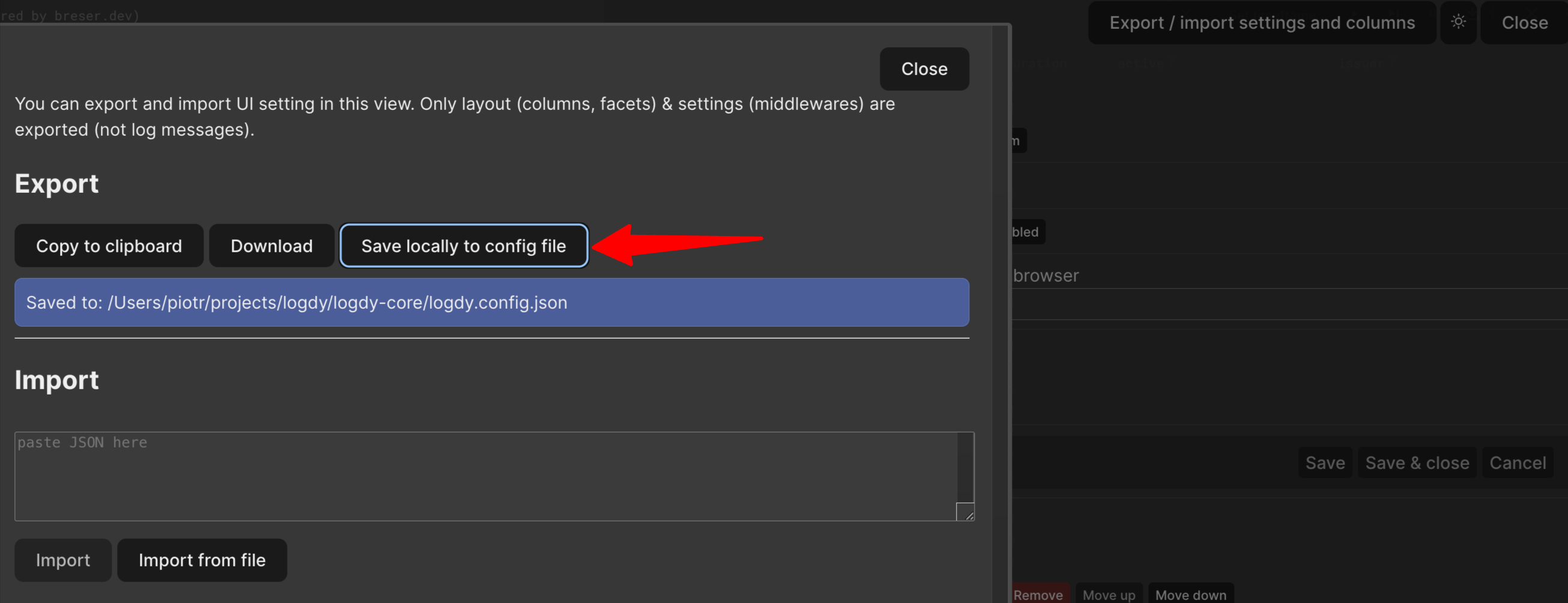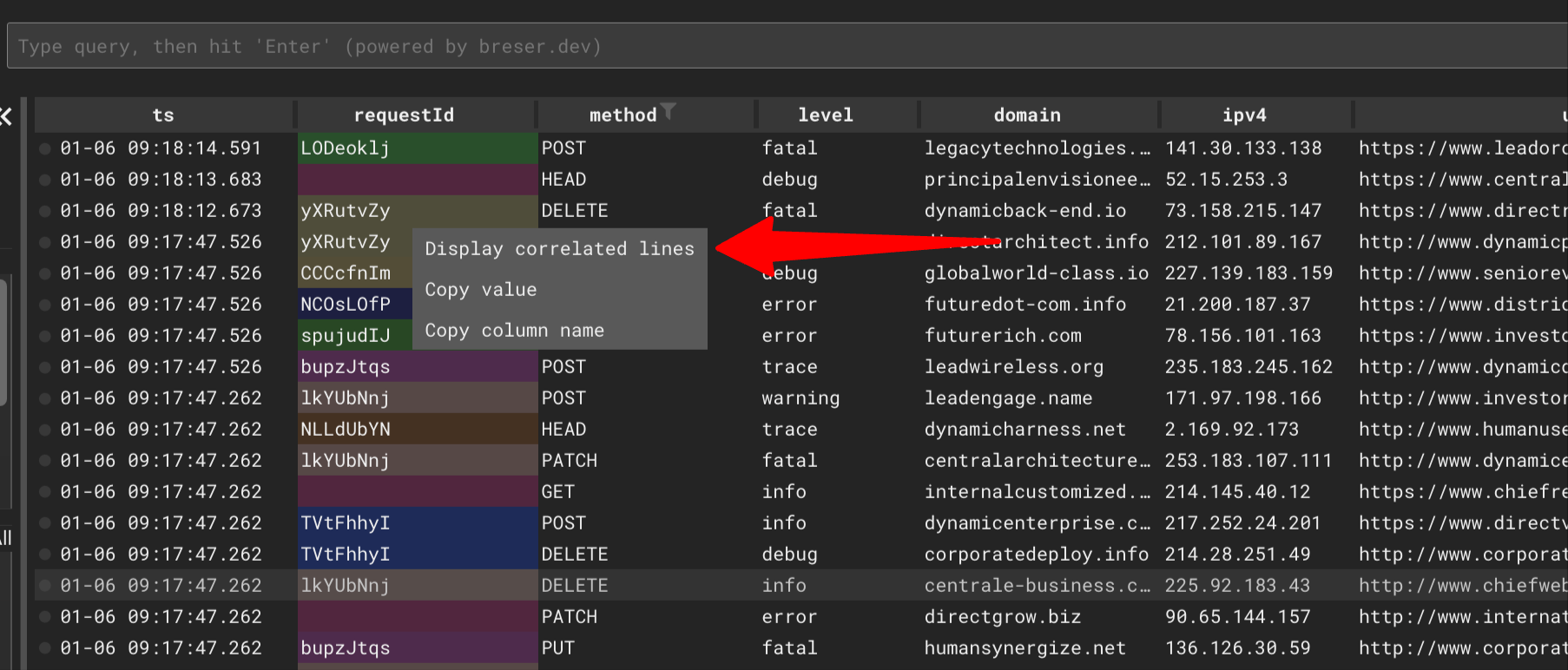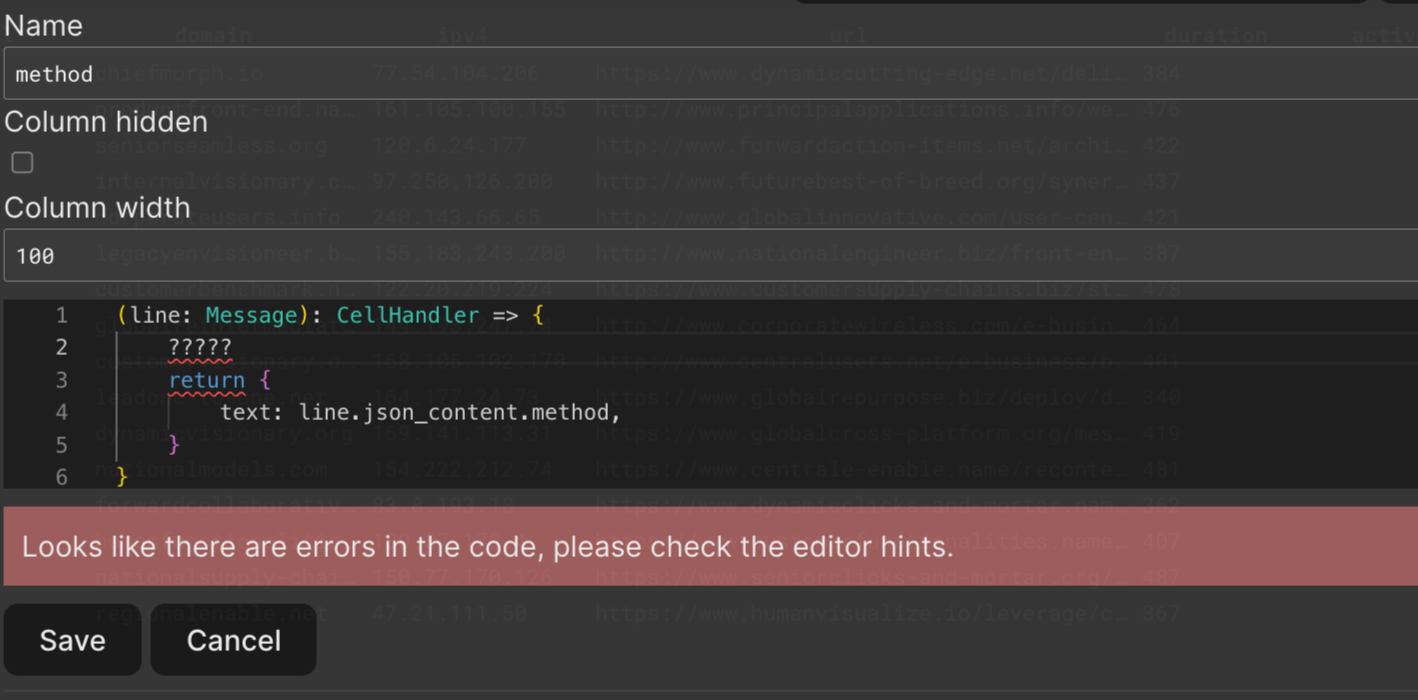Logdy new version announcement: v0.17
Saving and loading config from logdy.config.json file
You can trigger saving the current config to logdy.config.json file which will be placed where the command is being currently run. Then whenever you're starting Logdy it will look for that file and load the config. This feature is a great way to preserve a project specific settings that can be commited directly to the code repository.

Whenever you start logdy within the directory containing logdy.config.json file you should see the following output in the console
INFO[21:26:00.136] Loading local env file file=logdy.config.jsonWhich means the file has been served to the client upon opening.
Selecting "correlation id" column within the UI and automatic background coloring
You can select which column is your "correlation id". Previously it was only possible by defining it with a middleware.

In addition, you can enable colorizing cells with the same valu to better distinct visually the rows that belong to the same group.
New context menu option
A new context menu option has been added, it's a shortcut for filtering correlated lines. For this option to appear you need to select "correlation id" column in the settings.  Using that menu option will have the same effect as opening a line drawer and clicking button "Display correlated lines".
Using that menu option will have the same effect as opening a line drawer and clicking button "Display correlated lines".
Better error handling for column and middleware code
Few bugs and issues has been fixed when an error occurs within the TypeScript code of a middleware or a column code.
First, if the error appears in the column code it will be presented in the table cell (also drawer) and highlighted with red background. This will allow users to easily triage the error. 
Second, if the code editor is able to detect the error (for example syntax or a missing variable), upon saving the changes an error will be presented and the saving will be blocked.  You can see above,
You can see above, ????? has been added, that error prevents changes from being saved.
File log rotation
This feature is supported since version 0.17.1
When you use the --rotate-file-size argument, Logdy automatically manages your log files when using --append-to-file option. More in the docs.
